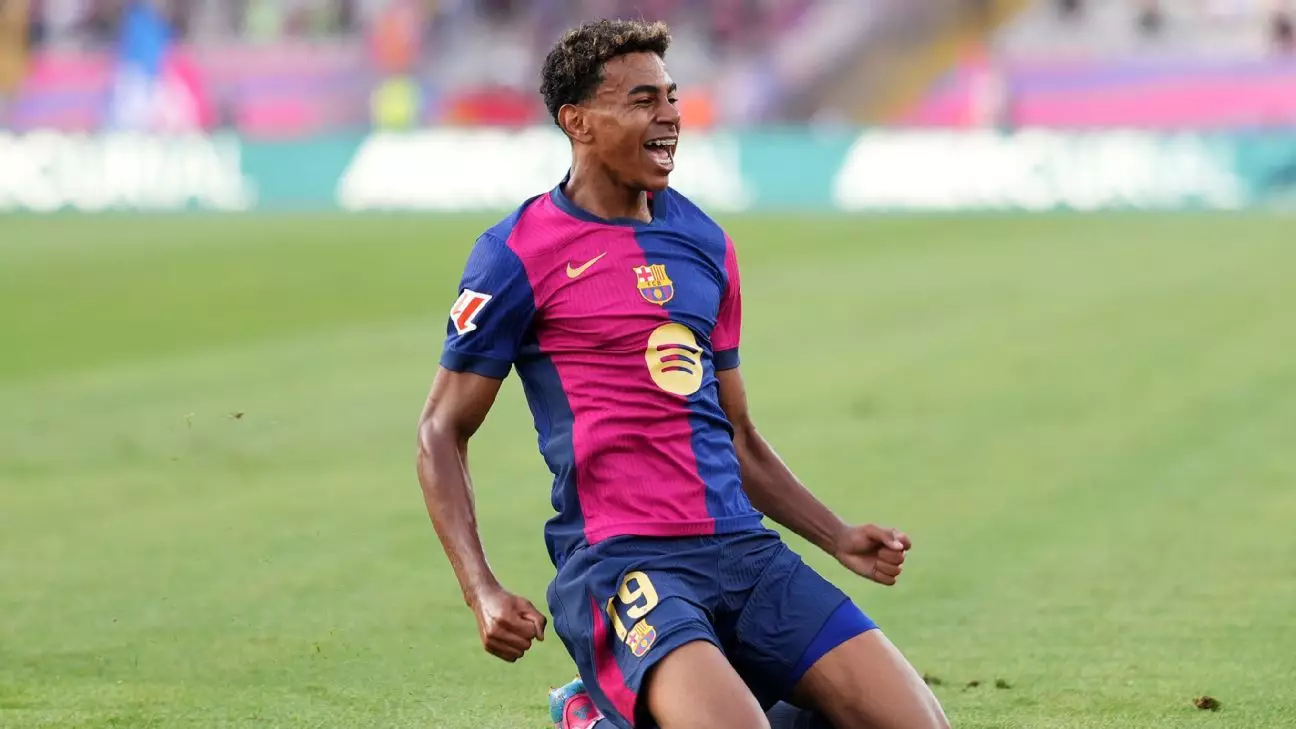In recent times, FC Barcelona has navigated a complex landscape of financial and sporting decisions. At the heart of these discussions is Joan Laporta, the current president, who has consistently maintained that the club’s strategies are not merely rooted in financial necessity, but also in a vision for sporting excellence. A prime example of this is the recent revelation regarding the club’s refusal to entertain a staggering $270 million offer for the prodigious talent Lamine Yamal. This decision highlights important underlying themes in modern football—youth development, financial sustainability, and the balance between club priorities and national interest.
Lamine Yamal, at a mere 17 years of age, has already established himself as a pivotal figure in the Barcelona squad. After his debut at just 15, the young forward has rapidly become a fixture for both club and country, amassing over 60 appearances for Barcelona and playing a significant role in Spain’s recent success at the European Championships. His rise has drawn attention from elite clubs, indicating the high regard in which he is held by the footballing world. The offer made for Yamal exemplifies the demand for emerging talent, yet this phenomenon presents clubs like Barcelona with a multifaceted challenge.
Laporta’s refusal to sell Yamal highlights a concerted effort to retain homegrown talent, portraying the club’s commitment to nurturing players who can be integral to their long-term vision. This perspective, while commendable, raises questions about the broader implications of the club’s financial state and its impact on player retention strategies.
Laporta has been outspoken against the idea that financial difficulties have compelled Barcelona to make haste decisions regarding player transfers. He refuted claims that the departures of players like Ousmane Dembélé and Marc Guiu were purely financial maneuvers, arguing instead that they were informed by sporting visions. This stance is both strategic and scrupulous; acknowledging that financial stability is essential, yet insisting that the heart of all transfers should be rooted in sporting merit.
However, this narrative prompts critical reflection: can a club truly escape the shackles of financial consideration when their stability hangs in the balance? In an era where financial Fair Play regulations demand accountability, the complexities of operational budgeting cannot be ignored. While Laporta insists on the integrity of their decisions, it beckons a broader conversation around the sustainability of expensive investments in young talent amid economic pressures.
As the club grapples with the responsibilities of nurturing a young star like Yamal, the relationship between national teams and clubs is increasingly contentious. The recent interaction between Laporta and Spain’s national coach, Luis de la Fuente, underscores this friction. With Laporta advocating for clubs to have priority in player welfare, particularly concerning injuries, the balance of power appears to be shifting.
Laporta’s defense of Yamal’s health, especially in light of past injuries to other young players like Pedri, illustrates his awareness of the potential pitfalls associated with over-exposure at a young age. This not only reflects a protective instinct for their players but also a tactical consideration for the club’s future. As it stands, Yamal’s well-being is directly tied to Barcelona’s ambitions, raising the question of how clubs will navigate international commitments without compromising their assets.
The case of Lamine Yamal epitomizes the duality facing FC Barcelona today—a club steeped in tradition yet compelled to adapt to modern football’s demands. The refusal of a massive transfer fee indicates a commitment to maintaining their most promising talents, setting a precedent for how clubs might value youth over immediate financial gain.
Yet, as FC Barcelona continues to rebuild and redefine its future in the wake of economic challenges, it will be crucial for leadership to harmonize the aspirations of young stars with the overarching goals of the club. Ultimately, Yamal’s journey, marked by both promise and scrutiny, will determine not only his legacy but also the strategic direction of Barcelona in the ever-evolving realm of football.
